What Happens After CPS Decide to Charge? A Guide for Defendants in the UK
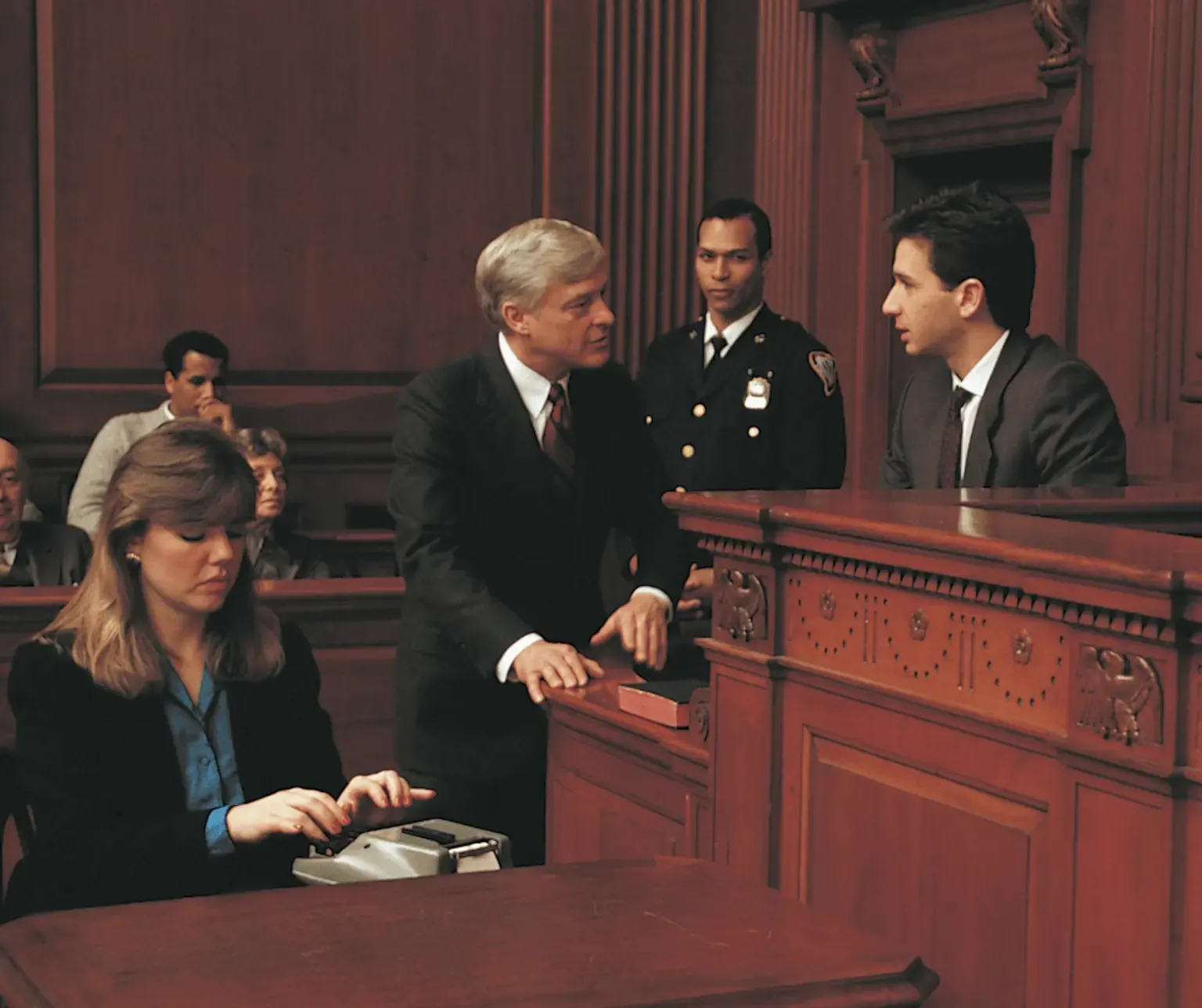
Imagine this: you've been questioned by the police, and then released. Days or weeks later, you're told the Crown Prosecution Service (CPS) has decided to charge you. You're not sure what happens next — or what it means for your future.
This situation is more common than you might think. For many people facing criminal allegations, what happens after CPS decide to charge is unfamiliar, confusing, and frightening.
This guide will walk you through every stage of the process. Whether you or a loved one has been charged, you'll find clear answers here. You'll also understand how expert legal representation from firms like MMA Law can make a real difference.
In this guide, we’ll cover:
- What it means to be charged by the CPS
- How the CPS make their charging decisions
- What happens immediately after you're charged
- The steps in the UK criminal court process
- Possible outcomes — including plea, trial, or dropped charges
- The importance of getting the right legal support early on
Let’s break it down, step by step.
Understanding the CPS Charging Decision
What is the CPS and What Do They Do?
The Crown Prosecution Service (CPS) is the public authority in England and Wales responsible for prosecuting criminal offences. Once the police finish their investigation, they pass the case file to the CPS for review. At this stage, the CPS decides whether there is enough evidence to charge someone — and if a prosecution is in the public interest.
The CPS works closely with the police but acts independently when making charging decisions. Their job is not to convict at all costs, but to ensure justice is served in a fair and lawful way.
In serious or complex cases, the CPS may also advise the police on the type of evidence needed before a charge can be made.
What Does It Mean to Be Charged?
To be “charged” means the CPS has decided that there is a realistic prospect of conviction and that pursuing a prosecution is in the public interest. It is a formal accusation of a criminal offence and marks the start of the criminal court process.
Being charged is different from being arrested. The police arrest someone when they suspect them of committing a crime and need to question them. But only after reviewing the evidence can the CPS decide whether that person should face prosecution.
Once charged, you will receive a written charge and requisition or be told when and where to attend court. From that point, the case enters the court system.
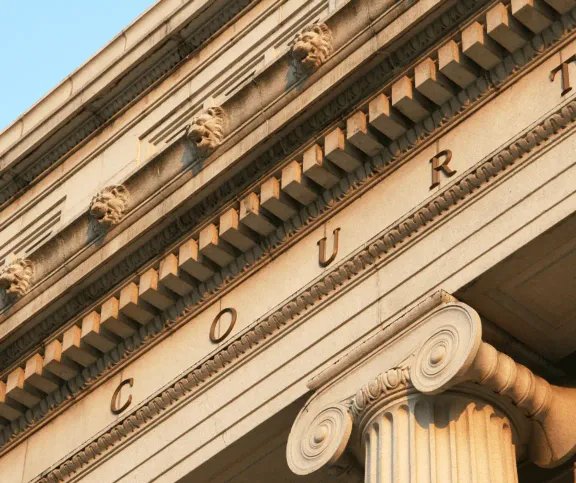
CPS Charging Criteria
To decide whether to bring charges, the CPS applies what’s known as the Full Code Test. This test has two stages:
- Evidential Stage – Is there enough evidence to provide a realistic prospect of conviction in court? The CPS looks at the reliability, credibility, and admissibility of the evidence.
- Public Interest Stage – Is it in the public interest to proceed with the case? This depends on the seriousness of the offence, the impact on victims, and other factors such as age, intent, or previous offending.
If both stages are met, the CPS will issue a charge. If not, the case may be dropped, or the police may be asked to carry out further investigation.
You can read the full CPS Code here: CPS Code for Crown Prosecutors
What Happens Immediately After You’re Charged
Notification of the Charge
Once the Crown Prosecution Service (CPS) decides to charge, you’ll be informed either by the police or directly by the CPS.
There are two common ways a charge is issued:
- A written charge and requisition – This tells you the offence you are being charged with and when to appear in court.
- A court summons – This is sent by post and includes similar details.
In some cases, the police may inform you while you’re still in custody. In others, you might receive a letter at home, asking you to attend Magistrates’ Court on a specified date.
Regardless of how you’re notified, it’s important to act fast. Speaking to a solicitor early can help you understand your options and protect your rights.
MMA Law can review your charge documents, advise on next steps, and begin preparing a defence immediately. Our team will give you clarity and peace of mind.
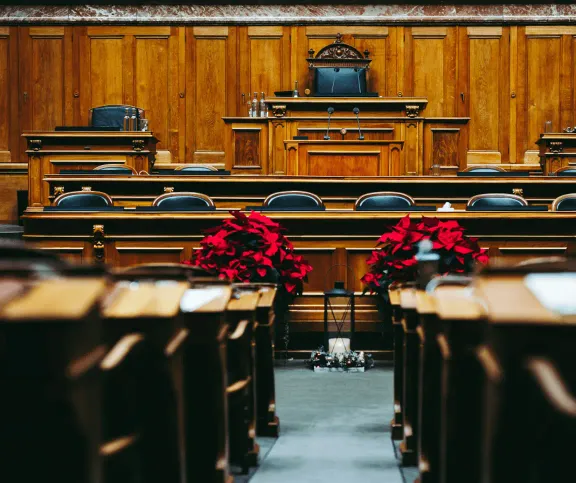
Custody vs. Bail
After a charge, the police or the court will decide whether you:
- Are released on bail
- Or held in custody (remanded) until your first court appearance
Bail
If released on bail, you must agree to certain conditions. These can include:
- Reporting to a police station regularly
- Living at a specified address
- Avoiding contact with certain individuals
- Surrendering your passport
Breaking any of these conditions could result in arrest and being held in custody until trial.
Remand in Custody
If the offence is serious, or if you’re considered a flight risk, the court may decide to refuse bail. In that case, you’ll be kept in custody until your court hearing — sometimes for weeks or months.
This is more likely for indictable offences or where a person has a history of failing to appear.
Why Legal Advice Is Crucial at This Stage
Being charged can feel overwhelming — especially if you're unsure about what comes next.
This is where legal support is vital. A solicitor can:
- Represent you during your bail application
- Argue for less restrictive conditions
- Liaise with the CPS on your behalf
- Begin gathering defence evidence early
We regularly supports individuals at this exact stage. We step in quickly, explain everything in plain English, and ensure your case is handled correctly from the start. We have specialist solicitors covering conspiracy cases, criminal defence, family law and divorce cases. Our solicitors are available 24/7 for police station representation and bail advice.
If you’ve been charged or expect to be, contact us now for expert legal help.
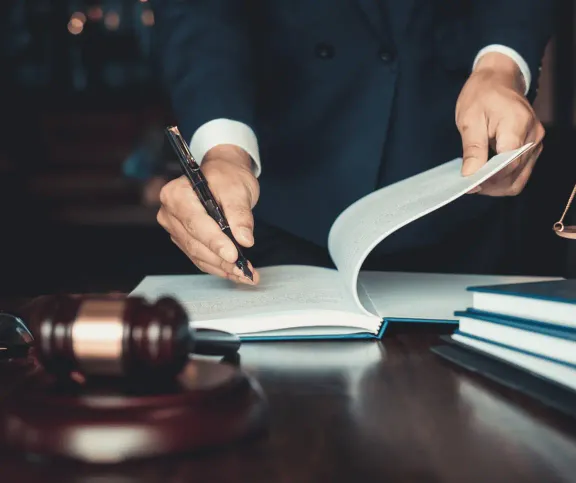
The Criminal Court Process After a Charge
After the CPS decides to charge you, the next step is the criminal court process. This can vary depending on the seriousness of the offence.
In England and Wales, criminal offences are dealt with in one of two courts:
- Magistrates’ Court – for less serious crimes (known as summary offences)
- Crown Court – for more serious or complex cases (indictable offences)
Some cases may start in the Magistrates’ Court but be transferred to the Crown Court depending on the charge and circumstances.
Understanding which court hears your case helps you prepare — legally, emotionally, and practically.
First Hearing at Magistrates’ Court
After being charged, your first court appearance will usually be at the Magistrates’ Court.
This hearing is sometimes called the first appearance or plea hearing.
Here’s what typically happens:
- The charge(s) against you are read out
- You are asked to enter a plea – guilty or not guilty
- The court may decide whether to grant bail or remand you in custody
- If your case is suitable for Magistrates’ Court, they may set a trial date or proceed straight to sentencing if you plead guilty
This hearing often takes place within a few days of being charged. Especially if you’ve been kept in custody.
Even if your case is relatively minor, having an experienced solicitor at this stage is essential. Our solicitors can appear in court with you, provide guidance on your plea, and apply for bail on your behalf if needed.
If the Case Goes to Crown Court
If you’re charged with a serious offence, your case will be sent to the Crown Court.
This usually includes:
- Drug trafficking
- Serious assaults
- Sexual offences
- Conspiracy or firearms offences
Your case will first go to the Magistrates’ Court, but it will be sent up to the Crown Court for further hearings and trial.

What to Expect
- Pre-trial hearings are used to manage the case
- Disclosure of evidence takes place between prosecution and defence
- The judge ensures the case is ready for trial, setting a trial listing date
- You may be asked to attend case management hearings
The trial itself will take place before a judge and jury.
Timelines: How Long Until Trial?
The time between being charged and going to trial can vary widely.
It depends on:
- The complexity of the case
- Whether you’re held in custody or on bail
- The court’s current backlog
Here’s a typical timeline after a CPS decision:
Case Timeline Example:
- Week 1 – Charge decision made
- Week 2 – First court hearing
- Week 4–12 – Pre-trial hearings and legal submissions
- 3–12 months – Trial at Crown Court (longer for complex cases)
There are often delays due to court availability or late disclosure of evidence. The Crown Court, in particular, has experienced backlogs in recent years.
Your Rights and Legal Support After Being Charged
Being charged with a criminal offence is serious. But you still have legal rights — and one of the most important is your right to legal representation.
Having an experienced solicitor on your side can make all the difference. The earlier you get advice, the stronger your defence will be.
Right to Legal Representation
You have the right to speak to a solicitor from the moment you are arrested or charged.
This is not just a formality — it’s your legal safeguard. A solicitor can:
- Attend interviews or hearings with you
- Protect your interests during disclosure
- Challenge unfair or incorrect procedures
- Apply for bail or review your bail conditions
If you can’t afford legal fees, legal aid may be available depending on your income and the seriousness of the charge. MMA Law can advise you on whether you qualify and help with the application process. We also offer a free 30 minute legal consultation.
Never face the CPS or a criminal court without a specialist solicitor. The stakes are too high.
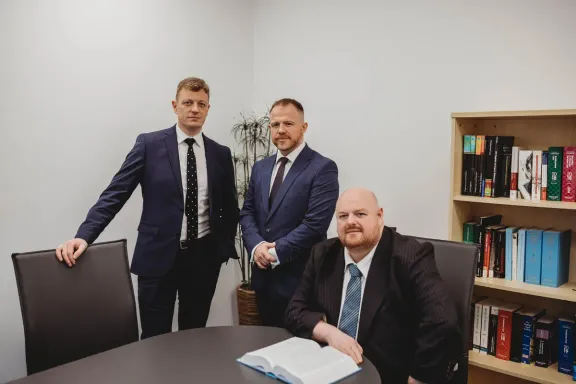
Disclosure and Case Preparation
After the CPS decide to charge, they are required to disclose the evidence they will rely on in court.
This includes:
- Witness statements
- CCTV footage or images
- Forensic evidence
- Interview transcripts
- Call data, phone records, and digital evidence
Your solicitor plays a key role in reviewing this material. We identify weaknesses, inconsistencies, or missing information and challenge it where appropriate.
If evidence is unreliable or unlawfully obtained, your defence team may be able to have it excluded — or even push for the case to be dropped entirely.
Possible Outcomes After a CPS Charge
Once you have been charged by the CPS, several outcomes are possible. What happens next depends on your plea, the strength of the evidence, and how your defence is presented.
Understanding these options helps you and your solicitor make informed decisions early on.
Guilty Plea
If you plead guilty at the first hearing, the court will move straight to sentencing.
This decision can sometimes reduce the severity of your punishment. In most cases, an early guilty plea results in:
- Up to one-third off the sentence length
- A quicker resolution with fewer court dates
- Less exposure to trial stress or media attention
However, always get legal advice before entering a plea. At MMA Law, we will review the evidence, explain the consequences, and ensure your rights are protected.
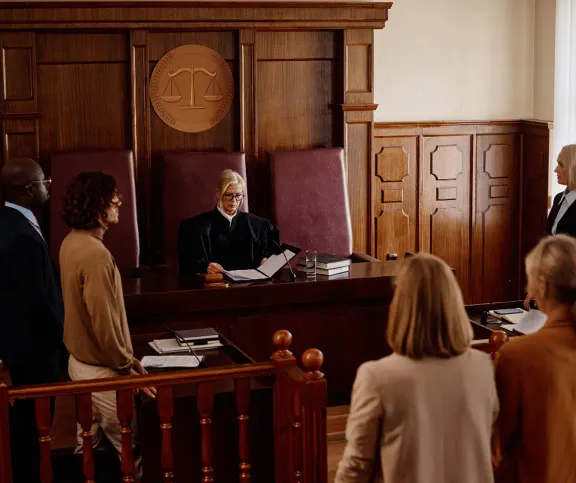
Not Guilty Plea
If you plead not guilty, your case will move forward to a criminal trial.
This means:
- A trial date will be set at either the Magistrates’ Court or Crown Court, depending on the offence
- The CPS must prove the charge beyond reasonable doubt
- You and your solicitor will prepare a full defence
At trial, both sides will present evidence. This may include:
- Witness testimony
- CCTV footage or forensic evidence
- Cross-examination and legal submissions
Case Dropped or Dismissed
Sometimes, charges do not proceed to trial. There are several reasons why a case may be:
- Dropped (before trial by the CPS)
- Dismissed (by the court at an early stage)
This can happen when:
- Evidence is unreliable or fails to meet CPS standards
- Police procedures were flawed or unlawful
- New evidence undermines the prosecution’s case
- The prosecution fails to disclose key material
FAQs
How long after CPS charge do you go to court?
After the CPS decide to charge, you are usually given a court date within a few days to a few weeks. The exact timing depends on the seriousness of the offence, court availability, and whether you are in custody or on bail. For minor offences, the first hearing is typically at a Magistrates’ Court. For serious indictable offences, your case may move to the Crown Court after an initial hearing. Always speak to a solicitor as soon as you’re charged to prepare properly.
Can charges be dropped after CPS decide to prosecute?
Yes, charges can be dropped even after the CPS have decided to prosecute. This may happen if new evidence weakens the case, if witnesses withdraw, or if continuing is no longer in the public interest. A defence solicitor can challenge weak evidence, raise legal arguments, and apply to have charges dismissed before trial. It’s vital to act early — legal advice can make a major difference to the outcome of your case.
Do you go to jail immediately after being charged?
No, you are not automatically sent to jail after being charged. After a CPS charging decision, you may be released on bail with conditions or kept in custody until your first court appearance. The court will then decide whether to grant bail or remand you in custody. Factors such as the offence type, prior convictions, and risk of fleeing are considered. A solicitor can argue for bail and help you understand your options.
What happens if I plead not guilty after being charged?
If you plead not guilty, your case proceeds to trial. The court will set a timetable for hearings, evidence disclosure, and witness preparation. The CPS must prove the case beyond reasonable doubt. Your defence team will prepare arguments, challenge evidence, and represent you in court. Trials may take place in either the Magistrates’ Court or Crown Court depending on the offence. A not guilty plea requires strong legal support and case strategy from your solicitor.
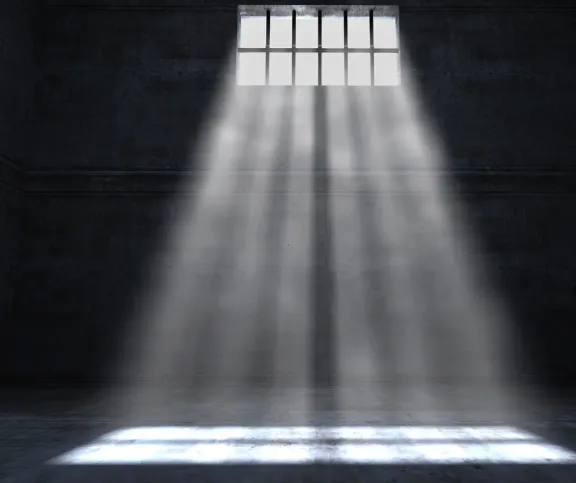
Can I change solicitors after being charged?
Yes, you can change solicitors after being charged. You have the right to choose legal representation that suits your needs. If you are unhappy with your current solicitor or need specialist support, you can instruct a different firm at any stage. MMA Law regularly takes over cases from other firms and provides a second opinion. We offer discreet, expert advice and can act quickly if your court date is approaching.
Your Next Steps
Being charged by the CPS can feel overwhelming, especially if you’re unfamiliar with the legal process. But it’s important to remember:
- A CPS charge is not a conviction — it’s the beginning of the legal process.
- Early legal advice can significantly improve your chances of a better outcome.
- From police interviews to trial preparation, every stage can be navigated with the right support.
- The CPS legal process UK is complex, but with expert representation, you’re never facing it alone.
If you’ve been wondering what happens after CPS decide to charge, we hope this guide has helped clarify the next steps.
If you or a loved one is facing criminal charges, get in touch with MMA Law today. We understand the stress and uncertainty that follows a CPS decision. Our experienced criminal defence solicitors are ready to support you — from the moment you’re charged right through to trial and beyond.
We offer a free 30-minute legal appointment from our Middlesbrough Law offices. Or we can travel across the North East to you and chat to help you understand your legal options without obligation.
Call 01642 294610 or contact us online to get confidential, expert legal advice today.
